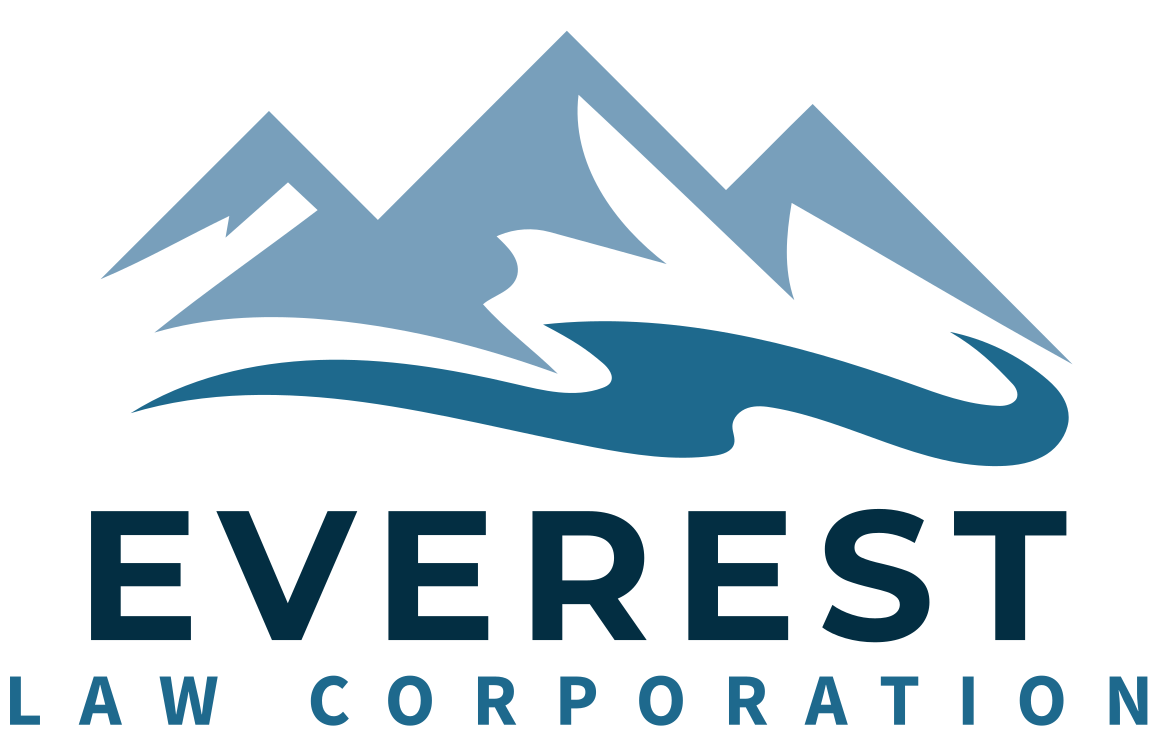Kelowna Wills, Estates and Trusts Lawyer
Estate Planning and Estate Administration
With nothing as certain as death (and taxes), estate planning is everyone’s issue. As the old adage goes: “You can’t take it with you.” If you do not prepare valid documents dealing with who will be your executor and what happens to your home, your money, your children and other assets upon your death, then a court will determine who will be your beneficiaries, how your assets will be distributed (according to provincial legislation) and a court-appointed executor will oversee your estate. Preparing an estate plan will give you peace of mind that your assets will be handled as you wish and that your lack of planning will not be the cause of family turmoil.
Estate planning covers a variety of issues that require careful consideration. Elise Everest of Everest Law Corporation LLP is your trusted source of advice on estate planning, including wills and trusts.
Elise is also here to help if you are named as the personal representative or executor of an estate under a Will (or if you would like to be named as a court-appointed executor because your friend or family member died without having a will). Elise can assist you through the probate process, which is a legal procedure which will grant you the authority to act on behalf of the estate. Elise can also provide guidance about what is involved in being an executor, how to avoid personal liability and the steps to administer an estate after probate is obtained.
For a consultation with Elise, please call Elise at 778-760-3495 or speak with Elise’s assistant, Melissa, at 250-869-1239.
Wills – the Cornerstone of an Estate Plan
A Will is a written instrument in which you express your wishes about:
- who will be your personal representative or executor of your estate;
- who will be the guardian of any of your minor children; and
- how your assets will be distributed after your death, including establishing trusts for the purpose of managing, using and protecting your assets over a period of time (such as until your minor children reach the age of majority).


Keeping Up-to-date
Because a Will is effective only after death, it is not considered a decision-making document during your life. It can be updated as circumstances change. Keeping your Will up-to-date is a critical part of any estate plan. Elise recommends that you review your estate plan whenever a major event, such as a marriage, divorce, birth of a child or death in the family, occurs in your life.
Wills, Estates and Succession Act
Wills and estate administration in British Columbia are regulated under the Wills, Estates and Succession Act (the “WESA”). The WESA came into force in 2014 as a means to modernize the wills and succession laws in B.C. Wills executed prior to 2014 continue to be valid; however, the WESA made some substantial changes to B.C.’s laws. If you have not thought about your estate planning since before 2014, Elise would be happy to discuss how some of the changes may affect you.
Intestacy – what happens when you die without a will?
Significantly, it is important to have a Will to ensure that your wishes are followed on death. If you do not have a Will, the WESA will determine what happens to your assets.
Intestacy – Your family home
For example, if you have a spouse (by marriage or by marriage-like relationship), and your family home is not owned in joint tenancy, then your spouse is not necessarily entitled to continue to live in the home. Unless your spouse is your sole beneficiary under the WESA, your spouse will be granted a right of first refusal to purchase your interest in the family home. Depending on the financial circumstances, this may not be possible for your spouse.

Intestacy – With a surviving spouse and children
Under the WESA, if you die without a Will, leaving both a spouse and children, then your spouse will receive a preferential share of your estate, and the remainder of your estate (if any) will be divided one half to your spouse and the other half equally among your children. If your children are also children of your spouse, then your spouse will first receive a preferential share of $300,000. If your children are from a different relationship, then your spouse will first receive a preferential share of $150,000. Under WESA, if you die without a Will without either a spouse or children, then the priority of succession is as follows: parents, descendants of parents, grandparents, descendants of grandparents, great-grandparents, descendants of great-grandparents, and if no such heirs can be found, the estate will “escheat to the Crown” (reverts to the provincial government).
Intestacy – New marriage
In the past, a marriage would revoke a Will, meaning that you would become “intestate” (in a position to die without a Will) upon marriage. The principal behind this rule was to fulfill a person’s legal and moral obligations to their spouse (i.e. the new spouse would be included in the intestacy provisions of the legislation but may not have been included in the prior Will). Under WESA, marriage no longer revokes a prior Will. This means that if you had a prior Will naming your siblings (or children from a prior relationship) as your beneficiaries and then you get married or re-married, your siblings (or children from a prior relationship) will remain the beneficiaries of your estate and your spouse will be “disinherited”. Your spouse would be required to make a claim under the variation of wills provisions of the WESA in order to make the case that they are entitled to a share of the estate. This can be a time-consuming, expensive and emotionally stressful process, best avoided by execution of an up-to-date Will.

Incapacity Planning
There are two essential documents for managing finances and making health care decisions during incapacity: the Enduring Power of Attorney and Representation Agreement.
Unlike executing a will, preparing documents such as an Enduring Power of Attorney and Representation Agreement address not an eventuality, but a possibility. Namely, these documents address what you want to happen should you lose your ability to make your own choices (or to express those choices). For example, you may be unconscious following an accident or surgery, you may suffer from a head injury or stroke, or develop an illness such as dementia or Alzheimer’s.
However, you do not need to have a serious illness or injury to benefit from a plan that allows a trusted advisor, friend or family member to step into your shoes and manage your financial and legal affairs. Perhaps you work in a remote or inaccessible place and you need some help paying bills on time? Or you need someone to deal with your insurance adjuster because a pipe burst in your house while you were on vacation?
Enduring Power of Attorney
An Enduring Power of Attorney allows you to grant authority to another person or persons to make decisions, give instructions and take action on your behalf regarding financial and legal matters. It is called “enduring” because it continues in effect even if you become mentally incapable.
The scope of authority granted in an Enduring Power of Attorney can be as narrow or as broad as you choose. The Enduring Power of Attorney may also be effective at once or may not be active until its activation is triggered by a specific event, such as your incapability. For example, you can grant an Enduring Power of Attorney that is specific to one transaction, like the sale of an asset, or that is limited for a period of time.
Any Enduring Power of Attorney is terminated when you decide to revoke it while you are capable, or upon your death.


Representation Agreement
A Representation Agreement allows you to grant authority to another person or persons to make health care decisions on your behalf if you are incapable.
Unlike an Enduring Power of Attorney, your representative may not make decisions on your behalf or consent to health care if you are able to do so yourself. It is important to understand that capability is a legal term that will apply to the particular decision that needs to be made. One person with diminished capacity may not be able to make a decision about investments because they have difficulty remembering the assets in their possession and cannot understand the consequences of making a poor investment decision; however, the same person may be perfectly capable of deciding whether or not to undergo a medical procedure because they can still understand how their quality of life will be affected.
In the event you do not have a Representation Agreement, a health care provider must seek consent from the first available, qualifying person on a list of “substitute decision makers” prescribed by law. In this case, the substitute decision maker may not be the person you want to make decisions for you.
Additionally, there are certain serious health care decisions, such as refusing life sustaining medical treatment, that cannot be made by a substitute decision maker. You can include your strongly held preferences and beliefs in your Representation Agreement to serve as guidance for your representative, who may need to make a difficult decision on your behalf.
Like Enduring Powers of Attorney, Representation Agreements may be updated while you are capable, and will be terminated upon revocation of the Agreement or your death.
Trusts
A “trust” is an arrangement that arises when one person, called the “settlor”, gives property to another person, called the “trustee”, to manage for the benefit of another person, called the “beneficiary”. In some instances, the settlor, the trustee, and the beneficiary may all be the same person.

There are fundamentally two kinds of trusts: trusts that arise upon the death of the settlor (testamentary trusts) and trusts that are established during the lifetime of the settlor (inter vivos trusts). Under the umbrella of testamentary and inter vivos trusts, trusts have different purposes and different names: family trusts, insurance trusts, Henson trusts, discretionary trusts, alter ego trusts, joint partner trusts, charitable purpose trusts and many others.
Canadian tax law surrounding trusts is very complex and therefore, it is important to consult with professionals who are alive to the tax issues that should be avoided when establishing trusts.
When advising clients as to the advantages and disadvantages of using trusts as a tool for tax and succession planning, Elise encourages collaboration between her clients’ financial and tax planning teams to develop the best strategies. Elise is always willing to put her clients in touch with other trusted advisors who can provide alternate perspectives on complex estate plans.

Reasons to establish a trust
Here are some reasons why you might consider establishing a trust:
- Managing assets. In some cases, you may wish to transfer ownership of assets to a particular person, but that person is not competent to hold them. For example, you have minor children, or one of your children has a disability. Transferring the assets to a trustee will ensure that the assets are managed properly and that your loved one will still receive the benefits flowing from the assets. This also allows for controlled distributions to beneficiaries over time, which is useful if one of your beneficiaries is a spendthrift.
- Protecting assets. When you place assets “in trust”, you are no longer the legal owner of the assets. What you give up in control of the assets, you may gain security that the assets cannot be seized by creditors, claimed by a spouse as a result of a marriage breakdown, or depleted as a result of undue influence. However, there are circumstances where legislation can prevent you from transferring assets to a trust to avoid claims.
- Avoiding wills variation. The WESA provides that your spouse or your children (both biological and adopted) may make a claim against your estate, if your Will does not “adequately provide for their proper maintenance and support”. A properly drafted trust established during your lifetime can mitigate the risk that your wishes will be challenged in court.
- Avoiding probate fees. If you establish a trust during your lifetime, the assets held in the trust will not form part of your estate, and therefore, will not be subject to probate or probate fees.
- Providing privacy. Probating a Will means that your Will becomes accessible to the public through the court registry, along with the value of your assets and liabilities at the date of your death. A trust instrument does not need to be probated. It is a private document that allows you to keep information confidential from all but your appointed trustees and beneficiaries. While beneficiaries may be restricted from reviewing some information concerning the use of discretion by the trustees, beneficiaries of the trust are generally entitled to see trust documents that set out the terms of the trust, the identity of the trustees, the assets within the trust, and trust accounts.
- Tax advantages. While recent changes in Canadian tax legislation have limited the ability for business owners to use trusts as a means for income splitting among their family members, one of the remaining benefits of using a trust (when it comes to holding shares of a qualifying small business corporation) is the ability to access the lifetime capital gains exemption of each beneficiary of the trust when the business is sold and the proceeds of sale are allocated to each beneficiary. Given that the lifetime capital gains exemption in 2018 was $848,252.00, a family of four would be able to jointly shelter $3.39 million in gains from the sale of the shares of a qualifying small business corporation owned by the trust.
- Preserving disability benefits. Under income assistance legislation, persons receiving disability assistance must generally use all income and assets available to them before relying on assistance. This means that if a person receives a large cash gift or inheritance it could affect that person’s eligibility for assistance. To maintain eligibility for assistance, B.C.’s income assistance legislation allows disabled persons and their loved ones to establish trusts and those assets within the trusts become exempt from inclusion in that person’s asset calculation.
- Helping charity. Trusts may be set up for the purpose of benefiting charity. A good example of this type of trust is a private foundation. This allows you to create a philanthropic legacy that may be controlled by you during your lifetime and then passed to your loved ones upon your death.
Estates and Probate
Probate is a process that verifies that a Will is valid under B.C. laws and confirms that the applicant for a grant of probate is the legally proven executor named in the Will.
Whether a Will needs to be probated or not will depend on the assets held within an estate. For example, in order to sell real property or to transfer real property to a beneficiary, a grant of probate must be filed with the B.C. Land Titles Office; however, if the estate consists of funds less than $25,000 in a bank account, then, depending on the bank’s policies, the bank may release the funds to the executor without requiring probate.


Have you been named as executor?
If you have been named as an executor in a Will, Elise would be pleased to help you with estate administration. Elise understands that acting as an executor is a time consuming and often thankless task. As an executor you will be organizing the funeral, dealing with personal effects, paying bills, notifying banks, utilities companies, insurance companies and others, cancelling subscriptions, credit cards and redirecting mail, and filing taxes, to name just a few responsibilities. Elise can provide guidance on all of these steps, she can assist you in completing an inventory and valuation of all assets and debts in the estate, prepare the court registry forms necessary to obtain your grant of probate; assist in paying the debts of the estate, and assist in selling assets, distributing the estate, and preparing the estate accounts for approval by the beneficiaries.
Knowing you have a knowledgeable estate administration lawyer to call when you are unsure of how to proceed as an executor can help you avoid sleepless nights, stress, uncertainty, and hours of research on the internet. Importantly, reasonable legal fees incurred by the executor for advice and assistance with estate administration may be charged to the estate and are not an expense that an executor must incur personally. Elise brings an abundance of experience to those feeling overwhelmed by executor obligations. The burden need not be nearly as daunting as it seems.
For further information with respect to any of the above, please call Elise Everest at 778-760-3495
